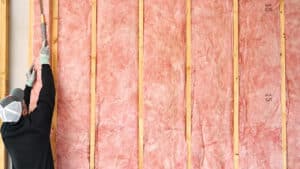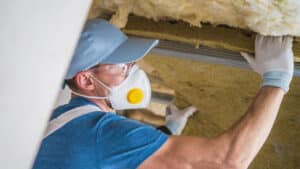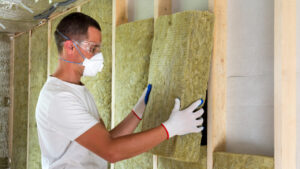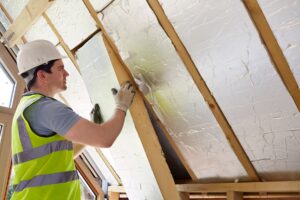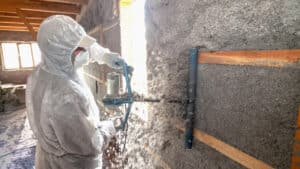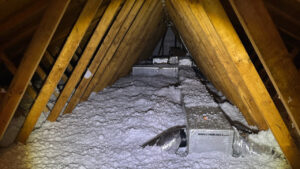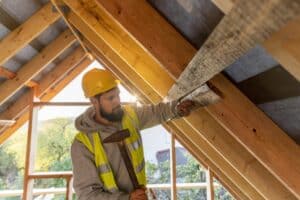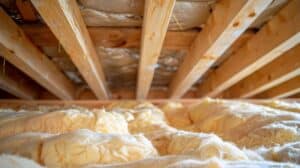Insulating your home shouldn’t just be something that you check the boxes and complete the task. Obviously, there’s a purpose to insulation, and potentially more damming there are negative things that can happen when the process is not done properly. Picking the wrong type of insulation for specific parts of your home, for example, can’t put the integrity of the entire place at risk. There are types of insulation, spray foam in this case that is known for being highly flammable. This is something that has been addressed and some of the more recent versions of the material promise to be less so. Even though that seems to be the case, cheap spray foam insulation set up in a very hot attic could put your home at risk.
We don’t want to just sound the alarm and make it seem like setting up insulation properly is a matter of life or death. It very can be, that improper insulation setup has led to fires in homes with disastrous consequences, but these issues tend to be outliers. Luckily with very basic knowledge of insulation materials and the options that are out there on the market, you book a proper service from an insulation company in Virginia Beach and be sure that you’re not putting the integrity of your home at risk. There are a couple of things though that you may want to keep in mind.
Different Spots Around The House Maybe Better Suited For Different Types of Insulation
We spoke about how flammable certain types of insulation are, now it’s time to talk about the other end of the spectrum. Fiberglass insulation is known for not being great at dealing with moisture issues. As is the case with spray foam insulation’s weakness there are a couple of ways to be able to tackle this. For example, with crawl spaces and areas that tend to get quite damp, maybe the answer is to do proper waterproofing work before insulating the area. That’s going to give you a bit more freedom when it comes to the type of insulation that you want to have installed. Although, we’d still recommend that you choose a particular type that can stack up well against the challenges that it’s going to face.
Going back to spray foam being flammable, the last thing that you want to do is put it in an attic with a really hot furnace, or store different types of chemicals in that attic that could spell disaster. What we are trying to get at is that there are different things that you can look into to protect your home. When you choose the right type of insulation for a specific area what you end up with is one less worry if you will. That peace of mind is certainly something that is worth having.
How Long Is Insulation Typically Going To Last?
Under the ideal conditions, quality insulation could potentially last decades upon decades. As a homeowner, you potentially wouldn’t need to remove or redo your insulation in any way. The key to all of this though is that part about ideal conditions. We’ve already mentioned two of the main enemies of insulation, and we may want to add a third which are pests. Pests can go together with moisture issues and really tear into not only the insulation but the entire framework or foundation of a house even. What we would recommend that you do is to have the area inspected rather regularly to make sure that conditions have not changed, and therefore you may need to start thinking about your insulation once again.
Another thing that we would certainly recommend is that you prep areas accordingly before you think about setting up your insulation. There are home insulation companies out there for example that do waterproofing on crawl spaces before setting up the insulation. Whether you can kill two birds with one stone by hiring the same company to take care of the entire project or not it’s certainly important to make sure that you take care of the issues that may be plaguing the home first before you just come in and install the insulation. Even if moisture or pest issues are not necessarily evident you probably want to at least schedule an inspection. Once you get that green light you can go ahead with the insulation.
Is There A Warranty With The Company That You’re Working With?
There are a couple of things to unpack here, for one you’re going to want to make sure that you’re getting quality materials installed in your home. It’s a good idea to ask any company that you want to get a budget from where they get their insulation and what that process looks like. There’s a chance that you’ll get a warranty from both the installer and the manufacturer if things go south. If you don’t know who the manufacturer is though that’s something that you could potentially be missing out on. Even a company that knows that they are selling short with the type of insulation that they are putting into your home doesn’t want it to fall apart quickly. If everyone is on the same page about what’s being put into your home and if that has a warranty it’s a better idea overall.
Regular Inspections Are What’s Going To Make Insulation Last
This is something that we kind of alluded to in previous paragraphs, yet we just wanted to close out by saying that if you want your insulation to last, getting inspected regularly is the best way to go about things. Twice a year is probably ideal, once a year can be ok in certain parts. As we mentioned, what you’re really looking into is the integrity of the insulation itself, as well as the specific conditions within the home. A change in the conditions can quickly turn the tide and ruin perfectly good insulation. Things like leaks and major pest issues come to mind as things that can turn the tide. Hence the importance of those regular inspections.

